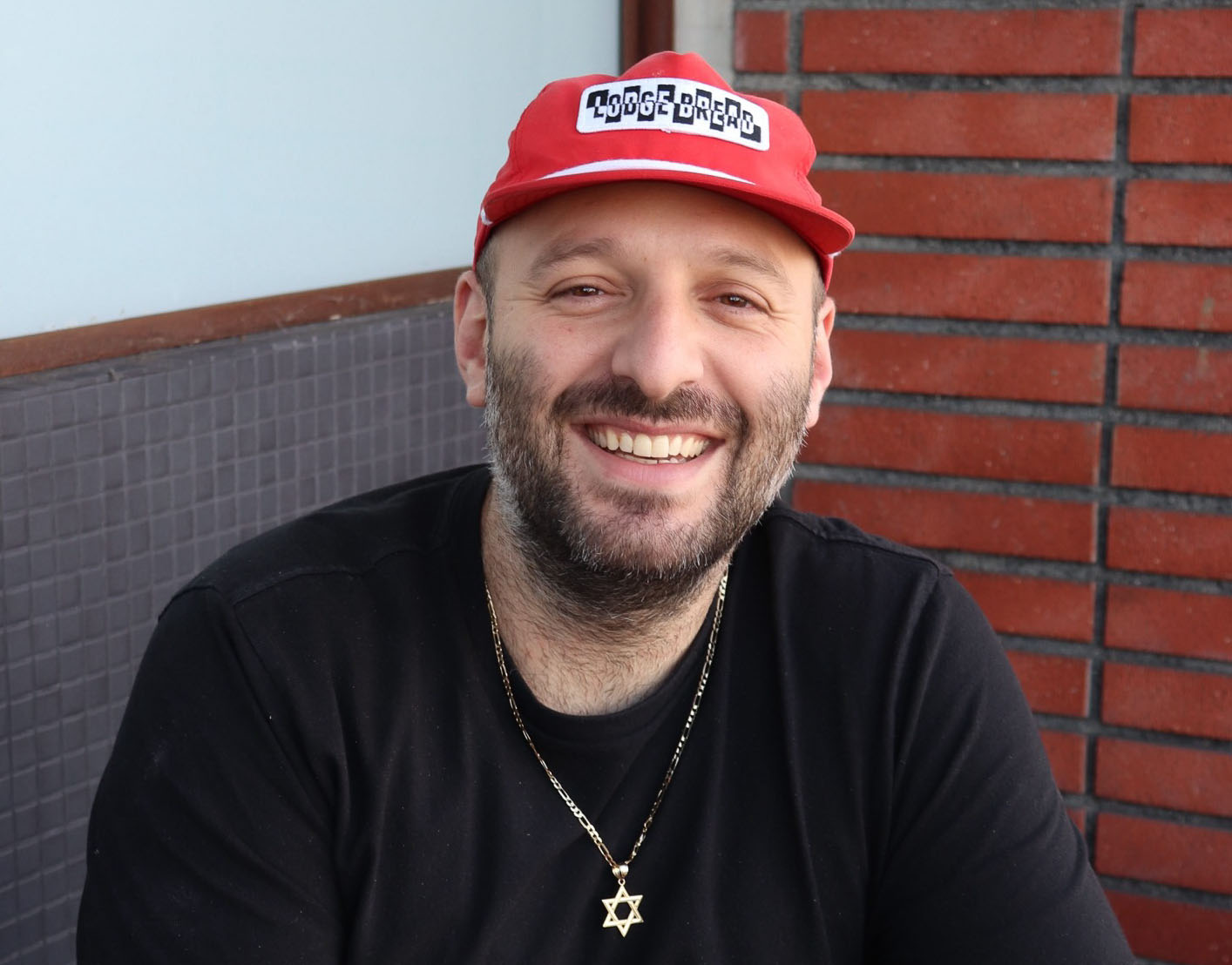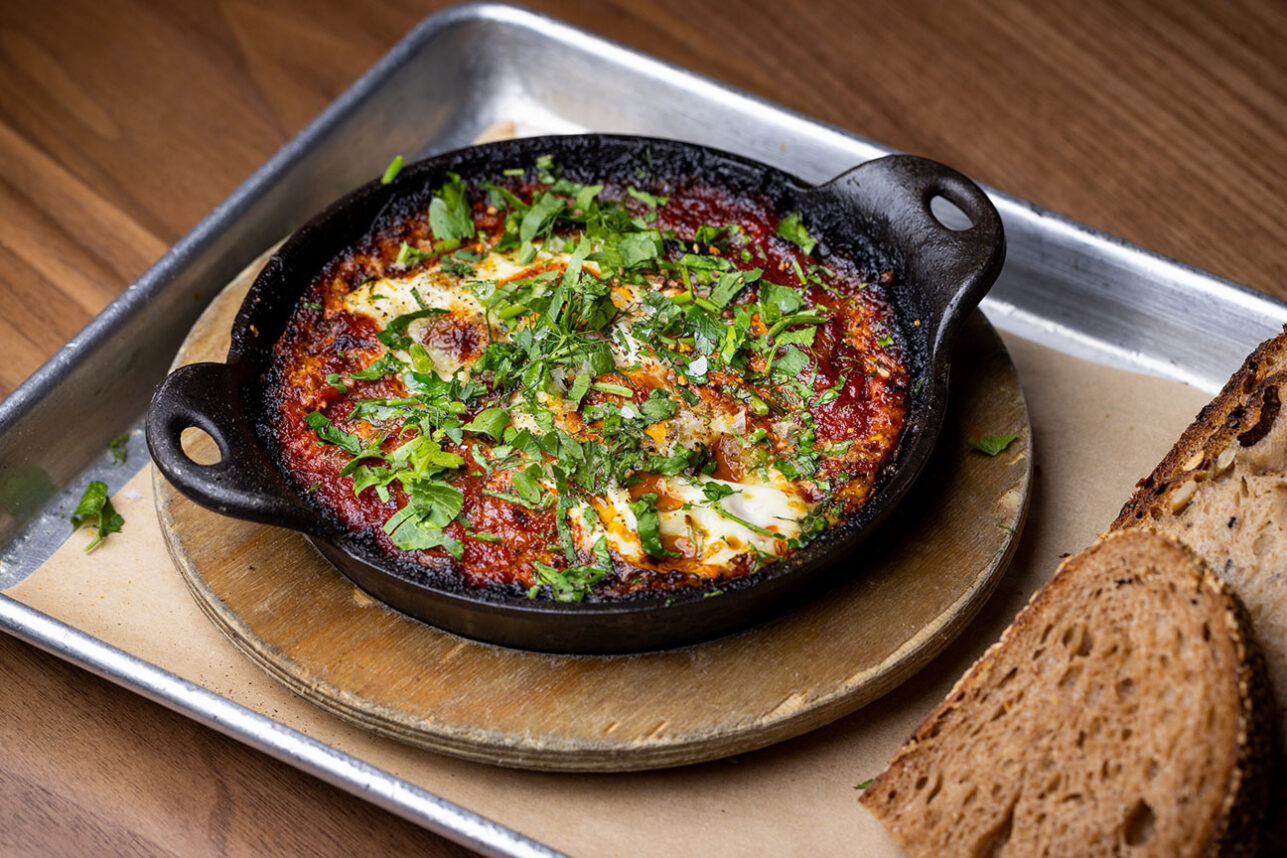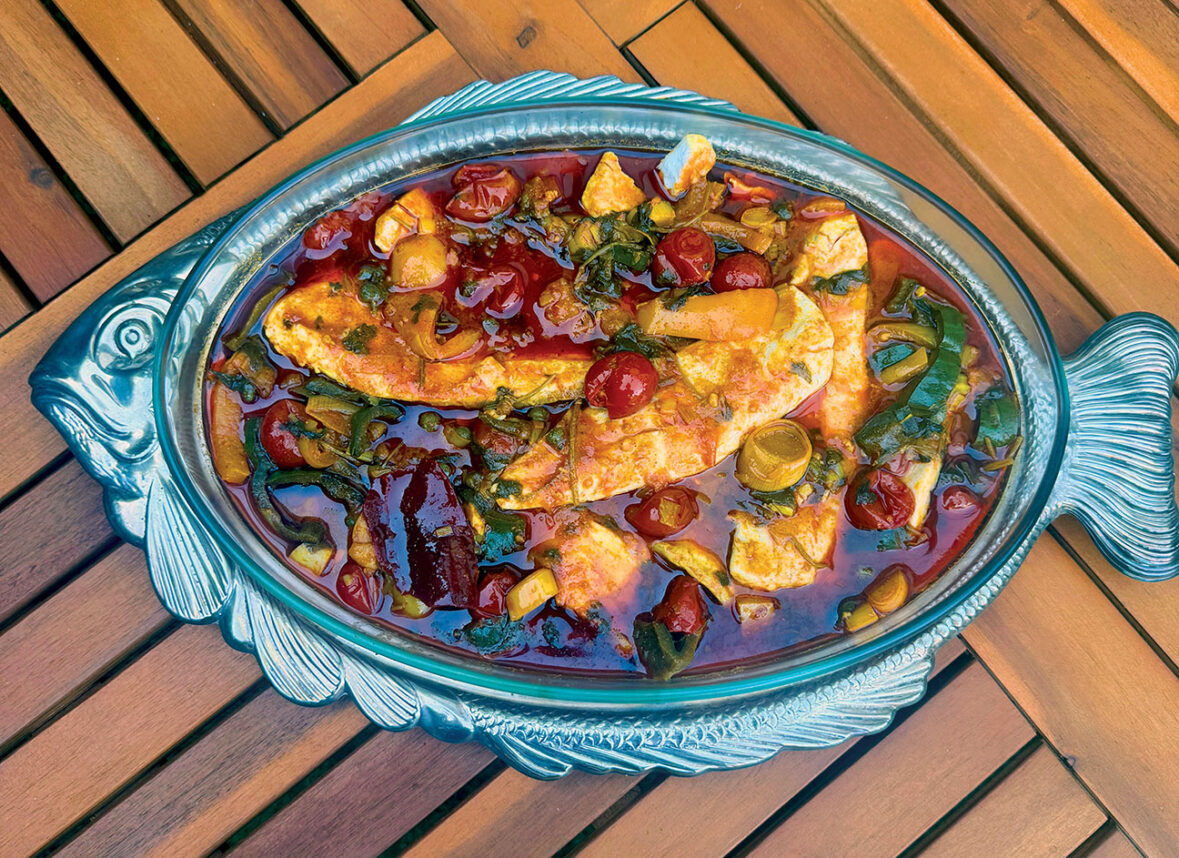
Chef Or Amsalam has always been obsessed with bread.
“I loved finding great bread as a kid and also later on in my professional life in kitchens,” Amsalam told the Journal. “Towards the end of my cooking career, I started doing some private cheffing and I just couldn’t find the type of bread that I wanted, so I just started making bread.”
The Los Angeles native, who served in the military before pursuing his culinary dreams at Le Cordon Bleu, is a two-time James Beard Award semifinalist and founder of Lodge Bread Co.
“Bread has always been a staple in my household,” Amsalam said. “Growing up in an Israeli Moroccan family, we ate bread with virtually everything: we ate bread with rice, we ate bread with potatoes, [we ate] bread with bread.”
Amsalam said his earliest – and fondest – memories of bread and food were in Israel at his aunts’ homes.
“When we would come in and sit down for a Shabbat lunch or dinner, the tables were filled with salatim (salad), different pickles and things to eat with bread,” he said. “Somebody was always making challah, so it was always important for me to find good bread with any food that I was serving.”
He believes bad bread can really ruin a dish.
“If you’re eating shakshuka, and the bread is no good, it just kind of dulls it all down,” he said. Amsalam’s shakshuka recipe is below.
Part of why he loves baking bread so much, Amsalam said, is because it seems like such a simple thing, but it is a daily challenge.
The secret to making bread?
“It’s a lot of repetition, but also just having faith in the recipe that you’re following and understanding that bread takes time to develop,” he said. “Your dough is not going to feel right in the beginning.”
Amsalam explained that people tend to add more flour or water, or they knead it more because the dough is not right. That’s not the solution.
“[Let] the bread develop in the right time and [don’t mess] with it too much,” he said. “And just keep going even if you fail, because you will fail when you make bread at home.”
He added, “We still fail in the bakery plenty, so understanding that failure is only a way to learn and to grow is very important in bread making.”
When they do a bread class at their bakery, people are often shocked by where the dough starts versus how it ends up after some time. The first step is mixing the flour and water and then letting it rest.
“Avoid that urge to add more flour because you feel like it is too sticky or too wet or needs to resemble more like a finished dough,” Amsalam said. “It’s just never going to feel that way until it has time for the gluten to develop and the grain to hydrate properly.”
Even after 30 or 45 minutes of letting the flour hydrate changes the dough a lot and makes it easier to work with.
While the end result is definitely worth it, not everyone loves to bake and that’s okay.
“You can’t force somebody to enjoy cooking or baking; some people look at it almost like a chore,” Amsalam said. “Instead of enjoying the moment of cooking, enjoying what it brings.
“When people sit at a table and actually enjoy the food that’s made, sometimes it inspires me to make a larger meal or something that I haven’t made in a long time just because I like how it brings people together.”
Lodge Bread has locations in Culver City and Woodland Hills; the Pico bakery and cafe closes November 18. The new location in Beverly Hills opens November 22.
Learn more at LodgeBread.com and follow @LodgeBreadCo on Instagram.
National Homemade Bread Day is November 17. For more on baking bread at home, Amsalam recommends “Tartine Bread” by Chad Robertson and “Josey Baker Bread.”
For the full conversation, listen to the podcast:
SHAKSHUKA

1 bag sweet peppers, de-stemmed and chopped
2 yellow onions, large dice
1 jalapenos, de-stemmed and chopped
8-10 cloves garlic, minced
2 TBSP c brown sugar
½ cup grapeseed oil
1.5 TBSP salt
—
2 TBSP sweet paprika
1 #10 can whole peeled tomatoes
In a large saute pan sweat the onions in the grapeseed oil until translucent.
Add the garlic, jalapeno and peppers and continue to sweat on medium heat. After roughly 5 minutes add the brown sugar, salt and paprika. Stir to fully incorporate.
Add the tomatoes (crush the tomatoes by hand in a bowl before adding) and bring heat down to a simmer.
Cook partially covered for roughly 1 hour until the sauce becomes thick and season to taste if needed.
To prepare the finished dish- Add approximately 6-8 whole eggs to your stew and simmer covered for approximately 10 minutes until eggs are runny in the center. You can adjust cook time based on your preference.
Top with maldon salt and fresh herbs and enjoy with fresh bread or pita.
Debra Eckerling is a writer for the Jewish Journal and the host of “Taste Buds with Deb.” Subscribe on YouTube or your favorite podcast platform. Email Debra: tastebuds@jewishjournal.com.


































